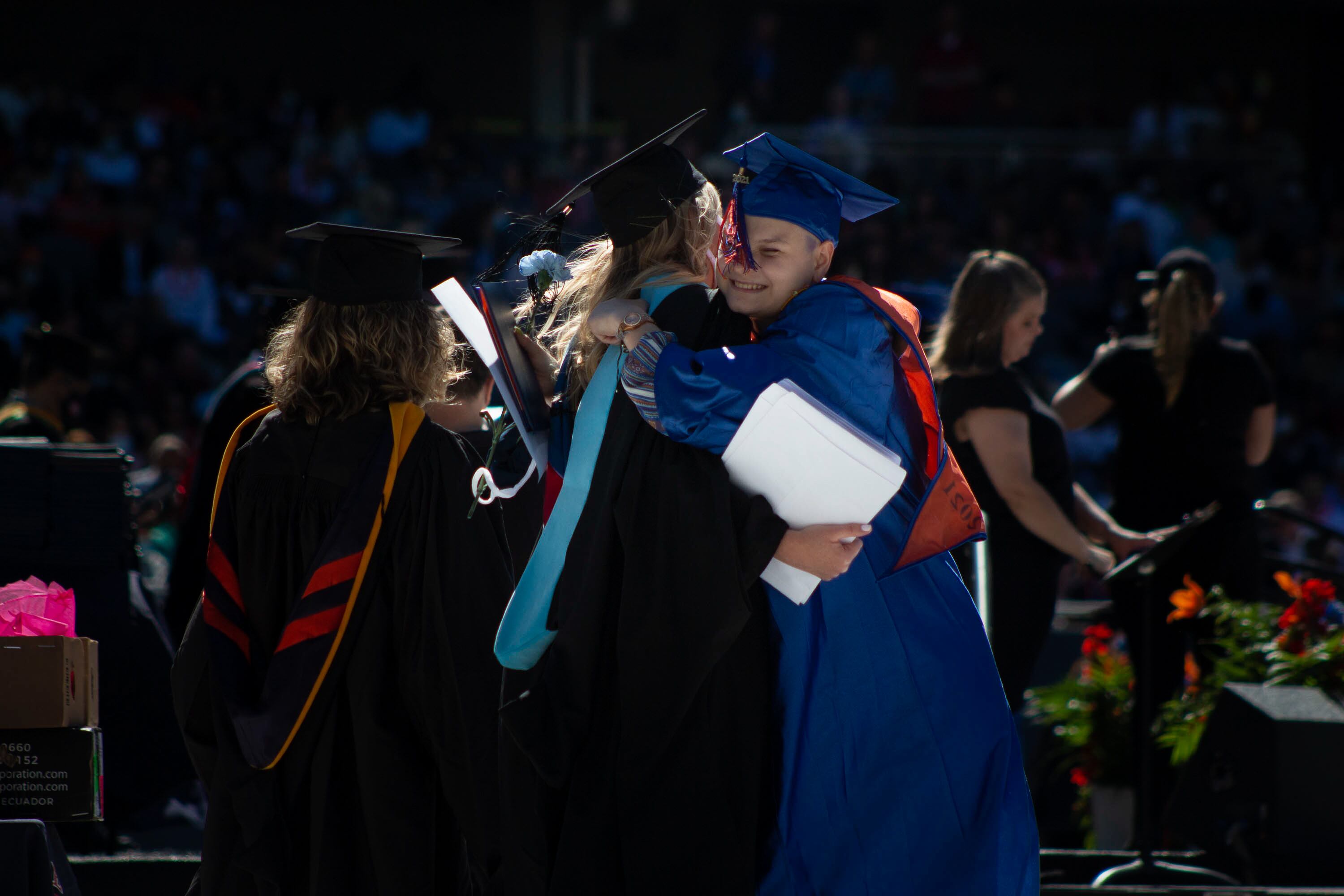The City Colleges of Chicago is doubling the number of slots in a summer program for incoming students who are looking to get a head start on earning credits — and get paid while they’re at it.
The City Colleges of Chicago’s Summer Start program, now in its third year, offers recent Chicago Public Schools graduates a chance to take a free class, get help with passing the system’s English and math placement tests, and earn a $1,000 stipend.
“For students who are feeling unsure about college and doing the whole, ‘Should I, or shouldn’t I?’ this program can be make or break,” said Peggy Korellis, the system’s vice chancellor of high school strategy.”
The pandemic-era effort is an attempt to counteract “summer melt” – the loss of students who express interest in attending college in the spring but never follow through with plans to enroll in the fall. Like community colleges across the country, City Colleges’ seven campuses saw steep enrollment drops after COVID hit, and despite a rebound last fall, enrollment is not back at pre-pandemic levels.
All seven colleges are offering Summer Start, targeting students who might not feel fully prepared for college yet, including tackling the system’s core English 101 course. Korellis called it “a soft launch into college” — a small piece in a larger puzzle of boosting the number of Chicago students who make it to campus and to a college diploma
Of the 50 teens who participated in the summer of 2021, about 45 returned for the fall semester. About 100 students attended an in-person session in 2022. This year, City Colleges aims to enlist 200 students, but has room for more.
Students get to take the system’s placement tests after receiving added support in English and math — a chance to avoid taking remedial courses, which research has implicated in many students’ decisions to drop out.
Among Chicago Public Schools graduates who enroll in a two-year college, little more than a quarter go on to earn a postsecondary degree — a statistic that has remained fairly consistent over the years, even as the number of students who graduate from high school and enroll in college has increased markedly.
The deadline to apply for Summer Start is June 12. The program, which runs from June 20 to Aug. 4, is open to students who graduated from Chicago Public Schools last fall or this spring. It also provides free books, mentoring and tutoring, campus tours, and social events.
Korellis said the program sprang out of a workshop for incoming students that City Colleges hosted virtually in the summer of 2020, months after COVID abruptly shuttered school buildings.
“We were really concerned about the high school seniors who hadn’t had a strong ending to their senior year and hadn’t solidified their college plans,” she said.
The system got positive feedback from students, but some suggested they would have loved a chance to earn some college credit as part of that summer introduction to college.
So in 2021, City Colleges expanded the virtual program to include a free class as well as writing and math support for students. That year, the system first offered students a stipend: $500 for students who showed up to the event, and another $500 after they registered for fall courses.
Officials knew the program would compete with summer jobs to squirrel away money for college, Korellis said. So the stipend was important to make students feel those weeks off work were truly worth their while.
“For the students who do come, it’s a great motivator,” she said of the money.
Besides the free class and the stipend, students have said that they really appreciated the chance to meet faculty and fellow students, check out their campus, and get a feel for the college experience ahead of the fall, Korellis said.
Mila Koumpilova is Chalkbeat Chicago’s senior reporter covering Chicago Public Schools. Contact Mila at mkoumpilova@chalkbeat.org.






